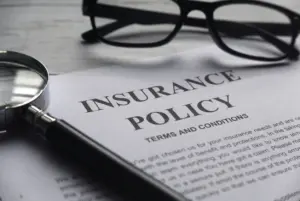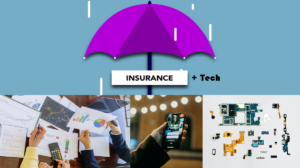In a world of increasing financial complexity, where credit cards, investment apps, and complex loans are commonplace, simply “working hard” is no longer enough to guarantee prosperity. For many, the path to a secure future is obstructed not by a lack of income, but by a lack of essential knowledge. This knowledge gap—often referred to as financial illiteracy—is the silent epidemic hindering millions from realizing their full potential.
Financial freedom—the state of having enough income or wealth to cover your expenses without having to actively work—might seem like an elusive dream reserved for the privileged few. However, its true prerequisite is not a high salary or a lucky break, but a solid financial education. This foundational understanding is the single most powerful tool an individual can possess to transform their economic trajectory and achieve true independence.
🧭 The Compass in the Financial Wilderness
Think of financial education as the compass and map in a vast, often treacherous, financial wilderness. Without them, you’re drifting—making decisions based on instinct, impulse, or the biased advice of those who stand to profit from your lack of knowledge.
A comprehensive financial education goes far beyond simply knowing how to balance a checkbook. It encompasses a spectrum of critical life skills:
- Budgeting and Cash Flow Management: The ability to track where your money is actually going, not just where you think it’s going.
- Debt Management: Understanding the difference between “good” and “bad” debt, the power of compound interest working against you, and strategies for efficient repayment.
- Saving and Emergency Funds: Establishing financial shock absorbers to prevent life’s inevitable crises (car breakdown, medical emergency) from derailing your long-term goals.
- Investing Fundamentals: Learning how to make your money work for you, understanding risk tolerance, and the crucial role of compounding interest working for you over time.
- Taxes and Insurance: Navigating complex systems to ensure you’re compliant, optimizing legitimate deductions, and protecting your assets against unforeseen events.
This knowledge doesn’t just enable better decision-making; it fosters a healthier relationship with money—one built on confidence, control, and clarity, rather than anxiety and guesswork.
🛡️ From Reactive Spending to Proactive Planning
One of the most immediate and profound impacts of financial education is the shift from a reactive financial existence to a proactive one.
1. The Power of the Budget
For the financially uneducated, a budget is often perceived as a restrictive, painful process. For the financially literate, a budget is a tool of empowerment. It is a document that reflects your deepest values, directing your income to serve your most important life goals, rather than allowing impulse to dictate your future.
“A budget is telling your money where to go instead of wondering where it went.”
2. Taming the Debt Dragon
Uncontrolled debt is the single greatest enemy of financial freedom. Without education, people fall into high-interest traps, mistaking a credit card limit for an extension of their income. Financial literacy teaches the destructive nature of high-interest consumer debt, revealing how it can effectively turn future income into past-consumption tax. The informed individual prioritizes debt elimination not just to save interest, but to reclaim their future earning power.
3. The Exponential Magic of Compounding
Financial freedom is rarely achieved through a single, massive windfall; it is earned through the consistent, exponential growth of intelligent investments. Financial education unveils the concept of compound interest—the “eighth wonder of the world,” as Einstein supposedly called it. Learning about this magic early means understanding that a small, consistent investment made at age 20 is dramatically more powerful than a large investment started at age 40. It motivates early action, consistent savings, and a long-term perspective.
📈 Democratizing Wealth: Education as the Great Equalizer
Historically, financial success was often dictated by one’s starting line—family wealth, inheritance, or elite networks. Financial education acts as a great equalizer. It is a portable, accessible skillset that is available to everyone, regardless of background, current income, or social status.
Breaking the Cycle of Poverty
For many, poor financial habits are learned behaviors passed down through generations that lacked the tools to build wealth. Financial education provides the necessary knowledge to interrupt this cycle. By learning to save, invest, and manage debt effectively, an individual not only secures their own future but also lays a stronger, more informed foundation for their children.
Navigating Economic Turmoil
Every decade brings economic uncertainty—recessions, market volatility, and job disruptions. The financially educated person is not immune to these events, but they are far better equipped to weather the storm. They possess an emergency fund, a diversified investment portfolio, and the emotional fortitude to resist panic-selling, knowing that long-term returns smooth out short-term fluctuations. This resilience is a form of freedom itself—freedom from constant financial anxiety.
🎯 Steps to Embrace Financial Education
The journey to financial literacy is continuous, but the starting line is simply the decision to commit. Here are practical steps to embrace this key to freedom:
- Start with the Basics: Learn fundamental concepts like net worth, budgeting, and the difference between a stock and a bond. Reputable, free resources abound online (e.g., non-profit financial literacy courses).
- Read Widely: Consume books, reputable blogs, and articles from certified financial professionals (CPAs, CFPs). Look for content that is educational, not merely promotional.
- Audit Your Own Finances: Create an honest, detailed snapshot of your current situation—all income, all debt, and all monthly expenses. You cannot improve what you do not measure.
- Practice Consistency Over Intensity: Small, consistent habits—like tracking daily expenses or automatically transferring $50 to an investment account—yield far better results than infrequent, intense efforts.
- Seek Objective Advice: While expensive financial advisors are not necessary for the beginner, utilizing non-profit credit counseling or tax preparation services can provide valuable, objective guidance.
🌟 Conclusion: The Ultimate Return on Investment
Financial education is arguably the highest-return investment you will ever make. It costs little or nothing to acquire, yet its potential return is life-changing: the freedom to choose your profession, to travel, to care for family, to retire with dignity, and to pursue a life rich in experiences, rather than one defined by the necessity of earning a paycheck.
Financial freedom is not a lottery win; it is the natural, inevitable result of consistent, intelligent decision-making over time. And in the complex modern economy, that intelligence is directly rooted in the education we choose to pursue. The key is in your hands—all that remains is the decision to use it.



